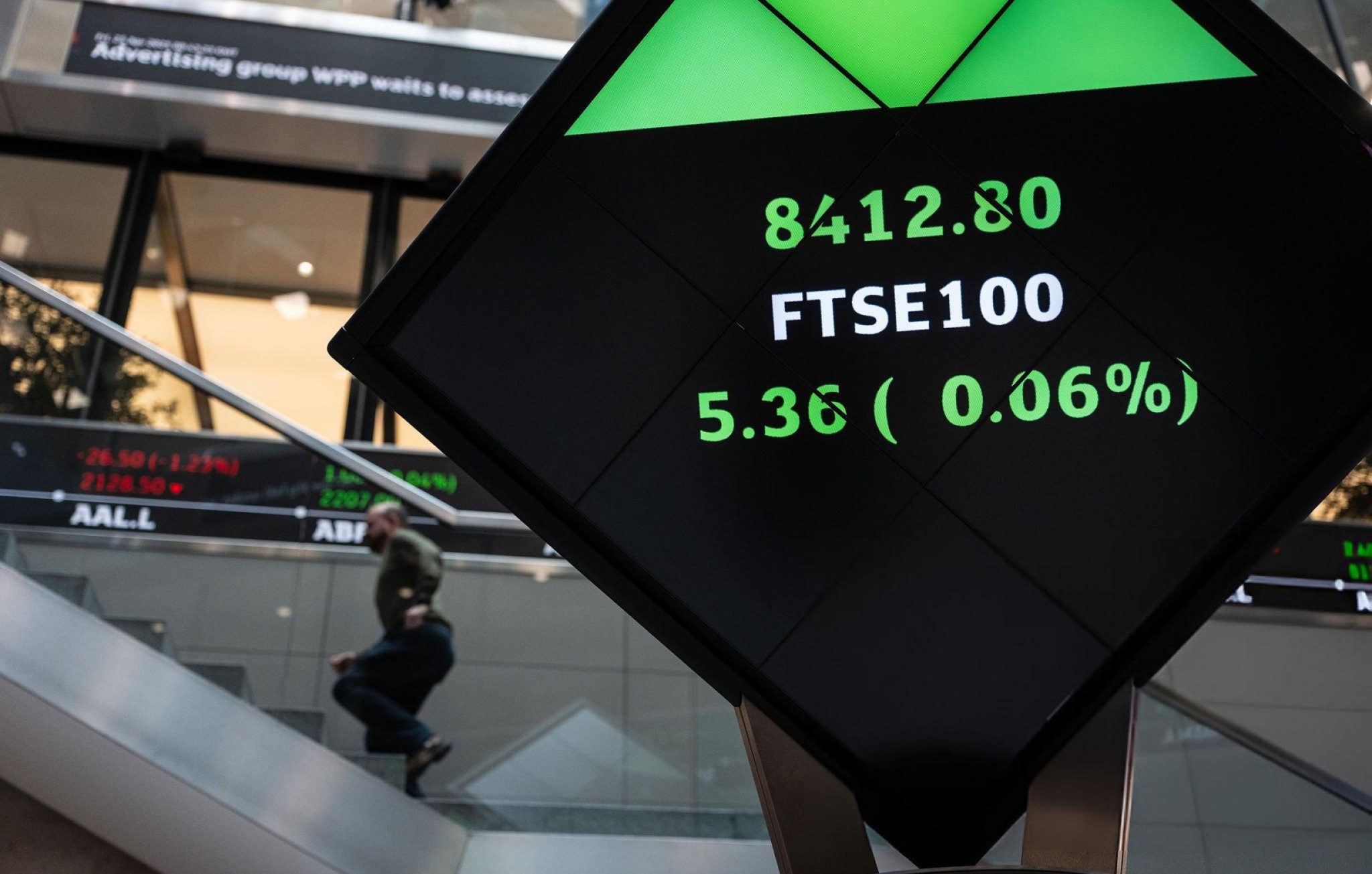Scarred UK assets soothed by US trade pact and BoE rate cut hopes
London, 9 May 2025 — UK markets, long plagued by political shocks and economic headwinds, are finally finding relief as a combination of a newly forged U.S. trade deal, imminent Bank of England (BoE) rate cuts, and rekindled hopes for closer European ties drive investor optimism.
Once dismissed by global investors wary of post-Brexit instability and the fiscal fallout from Liz Truss’s 2022 mini-budget, Britain’s financial assets are seeing renewed interest. The FTSE 100 index has just logged its longest daily winning streak on record, marking its return to alignment with international benchmarks for the first time since 2021. Simultaneously, sterling has surged near a 38-month high against the U.S. dollar, underscoring a wave of confidence not seen in years.
The rebound comes as investors pivot away from a faltering wall street, spooked by tariff tensions and spiralling U.S. debt, in search of comparatively stable alternatives. The UK, once the poster child for volatility, is now being reconsidered as a viable destination.
“These are all marginal benefits that together add up into something bigger,” said Paul Jackson, global head of asset allocation research at Invesco. He anticipates UK equities will outperform their U.S. counterparts this year. While the S&P 500 is down nearly 4% year-to-date, the FTSE 100 has climbed just over 4%.
The anticipation of a BoE rate cut on Thursday, with further easing expected throughout the year, has also emboldened fixed-income markets. Jill Hirzel of Insight Investment noted that 30-year gilt yields — a key benchmark for UK borrowing costs — are expected to fall from current highs of around 5.2%. Lower yields increase bond prices, offering a welcome boost to UK government securities.
Trade deal spurs confidence
Investor sentiment received a significant jolt of positivity following the announcement of a U.S.-UK trade deal. U.S. President Donald Trump, after weeks of tariff brinkmanship, revealed the agreement on Thursday. British car exports will now face a 10% U.S. tariff, slashed from 27.5%, while duties on steel and aluminium have been eliminated entirely.
“The UK was already seen as unlikely to be hit by harsh U.S. tariffs,” said Shamil Gohil, portfolio manager at Fidelity International. “But a clear trade deal lifts economic sentiment and reduces uncertainty.” Gohil added that this clarity could spur business investment and consumer spending, even potentially boosting GDP.
The FTSE 250, more exposed to the domestic economy, was up 0.6% in late trading in London on the news.
Adding to the optimism, Prime Minister Keir Starmer has proposed annual UK-EU summits, beginning with one in London on 19 May. While primarily focused on defence, the summit is seen as a potential springboard for broader cooperation on mobility, labour, and education — areas severely strained by the Brexit divorce.
Cautious optimism for stability
British markets have endured a turbulent decade. From the 2016 Brexit referendum to the 2022 bond market crisis, foreign capital has remained wary. In january alone, UK assets faced a sharp sell-off, with sterling falling to 14-month lows and 10-year gilt yields touching 17-year highs. But with U.S. policy uncertainty rising, Britain is starting to look like a steadier bet.
“I think political volatility in the UK continues, but hopefully from an international perspective, investors become less concerned about fiscal issues,” said Mark Munro, fixed income manager at aberdeen investments.
As global investors cast a more critical eye on the U.S., where protectionist trade measures and ballooning deficits threaten to destabilise treasuries, UK assets are appearing less risky by comparison.
That said, challenges remain. The National Institute of economic and social research warned that slow growth and high public borrowing could still force Chancellor Rachel Reeves into tax hikes or overspending. Nonetheless, the prospect of BoE rate cuts provides a cushion.
Andrew Jones of Janus Henderson said his firm has maintained an overweight stance on UK equities. “The UK has been discounted for a long time, but it’s a lot more stable now than what we’ve had,” he explained.
Premier Miton’s Chief Investment officer, Neil Birrell, echoed that sentiment. Though not currently increasing UK exposure, he noted an uptick in client interest. Gohil added that foreign pension funds are now seeking to diversify into the UK, with rising interest in bonds from UK banks and utilities.
“The UK’s definitely more immune to direct trade war effects,” Gohil said. “So actually, as a place to hide, it’s not the worst.”






